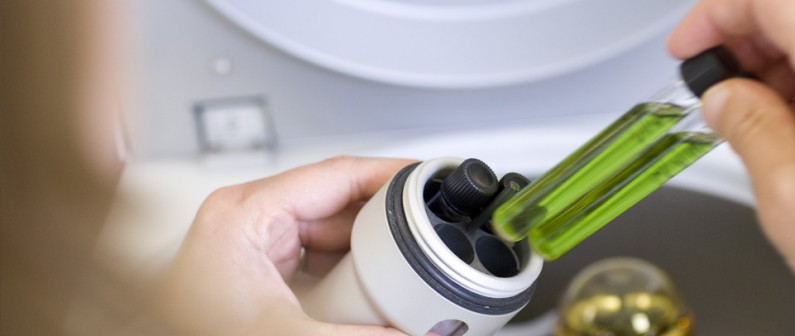
The drug, which is a highly purified extract of the cannabis plant, containing pure Cannabidiol (CBD) by the UK’s GW Pharmaceuticals, is a first-of-its-kind form of CBD.
HOUSTON, TX — Texas Children’s Hospital is a site for the first worldwide clinical trial testing the safety and efficacy of Epidiolex in children and adolescents with Dravet syndrome, a catastrophic form of intractable epilepsy that begins in early infancy. The trial will have two parts, with the first part determining ideal dosage for the drug, and the second part evaluating the drug’s safety and efficacy.
Beginning this month, the trial will enroll 30 patients worldwide to determine the correct dosages for Epidiolex, and later, with a second set of patients, to determine if the drug helps to reduce or eliminate their seizures. The drug, which is a highly purified extract of the cannabis plant, containing pure Cannabidiol (CBD) by the UK’s GW Pharmaceuticals, is a first-of-its-kind form of CBD.
Although derived from the cannabis plant, Epidiolex does not contain any tetrahydrocannabinol (THC), the major psychoactive ingredient in marijuana. GW Pharmaceutical is funding the trial of Epidiolex, which is administered orally as a suspension or via feeding tube.
Texas Children’s first began using Epidiolex in April 2014, under compassionate use protocols for select patients with catastrophic forms of epilepsy who were not responsive to other drugs. Dr. Angus Wilfong, pediatric neurologist and principal investigator at Texas Children’s, was the first physician in Texas to be able to administer Epidiolex to pediatric patients. Wilfong is best known for pioneering a laser ablation surgery for children with epilepsy and was a principal investigator for the first controlled trial using the drug Everolimus, which was shown to reduce the occurrence of seizures in patients with a genetic disorder called tuberous sclerosis complex.
“Initial trials of Epidiolex have shown promising signs of efficacy in children with treatment- resistant epilepsy and we are excited to be involved in research that will further determine if patients with Dravet syndrome will experience a reduction in their seizures,” says Wilfong, also professor of pediatrics- neurology at Baylor College of Medicine. “There are several extracts available from the cannabis plant that patients are trying, but with this trial, we are especially encouraged that Epidiolex does not contain any hallucinogenic or psychoactive components.”
Dravet syndrome occurs in about one in every 30,000 births. Children with Dravet face a diminished quality of life and it is not uncommon for them to experience dozens or even hundreds of seizures per day. These patients are also prone to prolonged life-threatening seizures called status epilepticus. Seizures in children with Dravet syndrome are often not responsive to currently available medications and are difficult to control. These children often struggle with developmental delays, a variety of health problems and have an increased risk of Sudden Unexplained Death in Epilepsy (SUDEP).
“As one of the largest epilepsy centers in the country, our focus has always been to find new and innovative ways to treat and cure children with various forms of epilepsy,” Wilfong adds. “Children with Dravet syndrome, one of the most devastating forms of epilepsy, face particular challenges as their seizures are so difficult or impossible to control that it impacts the child’s ability to lead a normal life, as well as the entire family.”
Currently, the Epidiolex trial is accepting only pediatric patients with confirmed Dravet syndrome. To learn more, please visit clinicaltrials.gov or call Christina Talley, BS, CCRP, at 832-822-1276.
“We are hopeful that in the next year, the results of this trial will show this drug has a positive impact on enrolled patients and also that it will have implications for patients with other forms of intractable epilepsy,” said Dr. Gary Clark, chief of neurology at Texas Children’s, professor of pediatrics and section chief of pediatric neurology and developmental neuroscience at Baylor.
The Epilepsy Center at Texas Children’s evaluates and treats children with seizure disorders and epilepsy. The center offers comprehensive care for children with epilepsy and seizures and its multidisciplinary team includes pediatric epileptologists, neurosurgeons, specialized pediatric nurse practitioners, neuropsychologists, neuroradiologists, neuropathologists, dietitians and a social worker. Texas Children’s Epilepsy Center is recognized by the National Association of Epilepsy Centers (NAEC) as a Level 4 epilepsy center. Level 4 epilepsy centers have the professional expertise and facilities to provide the highest level medical and surgical evaluation and treatment for patients with complex epilepsy. As director of the Comprehensive Epilepsy Program at Texas Children’s, Wilfong has more than 28 years of experience in the fields of pediatric neurology and epilepsy and is board certified in child neurology, clinical neurophysiology and epilepsy. Well-versed in all types of research, he serves on editorial review boards for 11 peer-reviewed journals and medical publishing sources and has a 22-year history of both participating in and leading clinical research work.
For more information about Texas Children’s Epilepsy Center visit texaschildrens.org/epilepsy.
